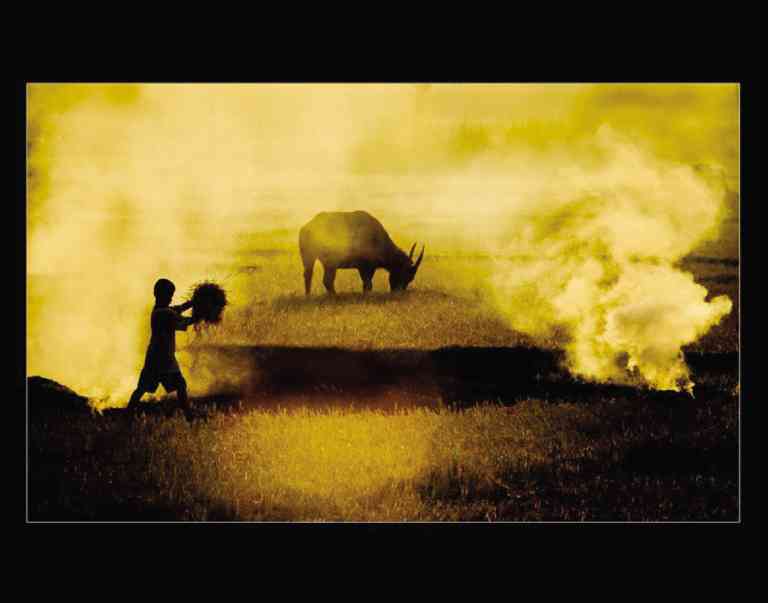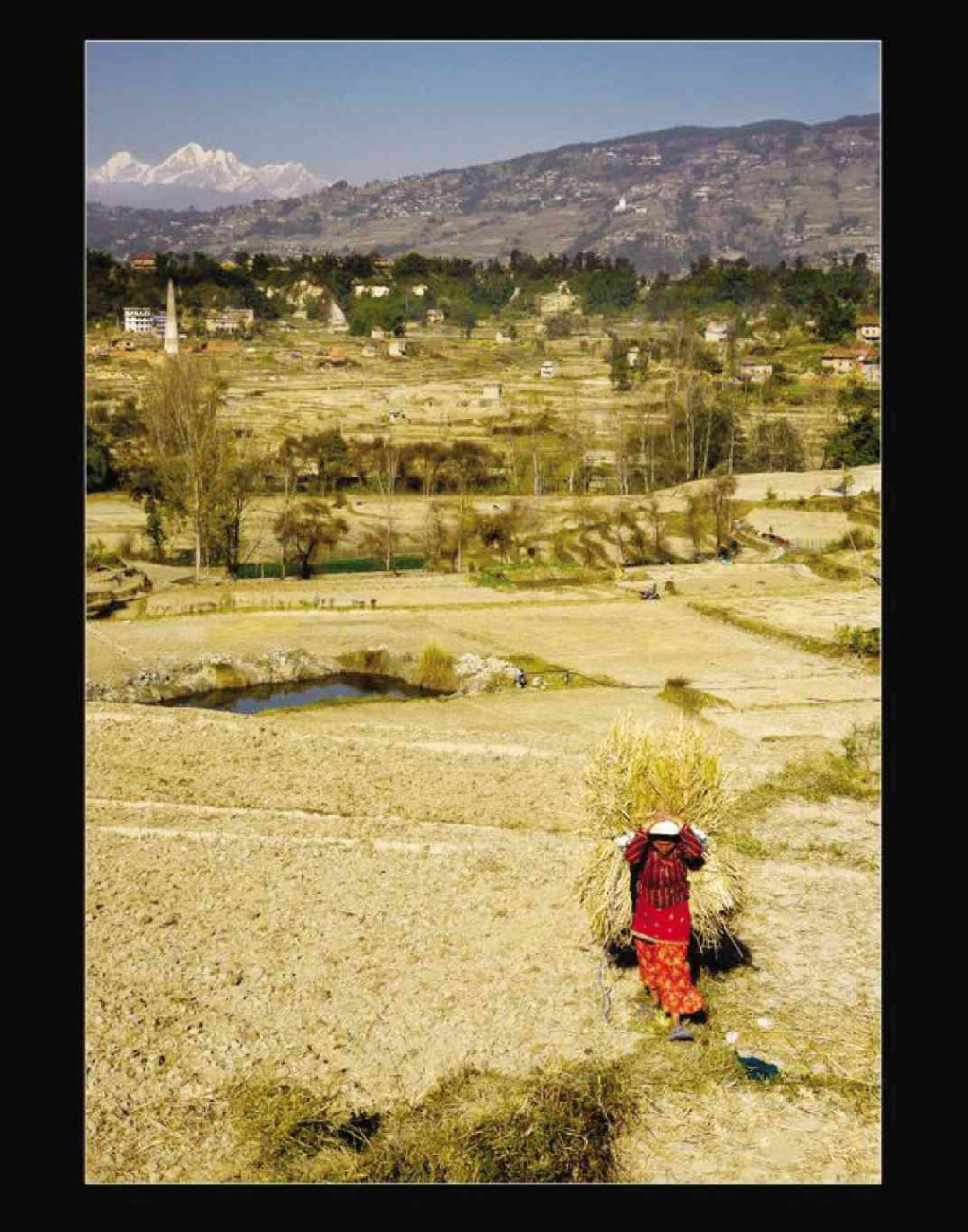Informatics CEO finds the angel in the details

SMOKING FIELD. Riingen was traveling to Baguio via Nueva Ecija with the late Francis Magalona when he took this shot.
Informatics CEO Leonardo Riingen has an eye for the smallest of details.
He sees and appreciates the beauty in everything—from the rust on steel structures to the intricate patterns in nature, complex shapes of matter, bright facial expressions and breathtaking landscapes.
And this prized trait was developed over years of taking pictures.
“Photography has made me more aware of details around me, and when you capture these in photographs and share these with people, it makes you appreciate creation even more,” Riingen tells the Inquirer.
The 51-year-old’s passion for photography, in turn, has helped him become a better leader and CEO of the 18-branch strong Informatics Philippines, a provider of education and training in information technology and business. Photography has helped provide him the right frame of mind to tackle the growing challenges confronting the education sector.
Riingen’s passion for photography was ignited when he was 14 and his father gave him a German Praktica camera and rolls of expired film. His father had worked in Kodak Film for 25 years and, instead of throwing out the expired film rolls from warehouses, he brought some home for his son to use.
“My full manual camera with expired film forced me to figure out how to take good photos despite the handicap. When people started praising my snapshots, I began loving cameras and shooting portraits,” Riingen said.
Riingen pored over photography magazines during his college years at the University of the Philippines in Diliman. With back issues of Popular Photography among his guides, he learned to shoot like the professionals, still with expired film.
Riingen even became a wedding photographer while he was completing his degree in Economics. He took part in almost 200 weddings during that time, and the earnings helped him sustain his expensive hobby and buy good cameras. He continued taking photo assignments on the side when he started working, up until the time he became too busy at work to juggle the responsibilities.

SUNSET AT LONG BEACH. Riingen tried to capture the visual delight presented by the lighthouse in California.
Then a friend sponsored him to become a member of the Camera Club in 2003. Riingen’s knowledge improved exponentially through interaction with his co-members like Rudy de Leon, Emil Davocol, Bien Bautista, Kiko Balagtas, Raul Montifar, Bobby Paterno, Quincy Castillo and Rey Ortiz.
“My skills became better through assimilation,” explains Riingen, who notched his first win not long after joining the club.
The theme was “Rites of Passage,” and the image that came to Riingen’s mind was baptism, a significant event in a Christian’s life.
Using just simple overhead lighting, he photographed his niece and captured her staring at the water. The photo almost got a perfect score of 5. Three of the Camera Club judges scored it a perfect 5 while another scored it a 4.75. The photo became part of the Camera Club’s 75th anniversary exhibit at the National Museum.
“I didn’t expect [to win an award]. I was a probationary member of the club and thought that competing with veteran photographers will not give me a chance to win. I was just motivated to shoot and compete. That feeling inspires me to take better photos every time,” says Riingen.
These days, the student has become a teacher.
Riingen teaches Composition at the CCP Center when his schedule allows. He also still actively competes during the monthly contests, to maintain his current top ranking in the CCP annual Masters Cup. He also shoots portraits for friends and family and tries to save on advertising costs by handling the food shots for the Dome coffee shop, which he also runs, and poster photos for Informatics.
Photography, he says, has its immense benefits that do not appear on the balance sheet and income statement.
“It stimulates my creativity and also controls my temper,” Riingen says. It makes “my right brain active, while the left brain is stretched during working hours.”
Riingen has been exercising his brain muscles more than he has in recent years as he needs Informatics to adapt to the changing conditions in the education sector.
He says the business has become tougher due to the competition and policy shifts, such as the introduction of the K-12 basic education system.
But opportunities have also opened up. He is intent on taking advantage of those and provide Filipinos with special skills and knowledge in information technology and business that they can use to earn a good living here or abroad.
For Riingen, there is nothing more fulfilling than seeing students graduate. On June 2, 1,000 students of Informatics will take part in a grand graduation ceremony at SMC Convention Center, and Riingen says he makes it a point to shake the hand of every graduating student and his or her parents.
The pressing need for him to secure his companies’ place on the growth path impinges on his time for photography, but Riingen makes sure that he has enough time for both.
“You just have to make time. I shoot even during the work week, for example. I bring a camera along and I stop and shoot when there are interesting subjects while I am navigating Manila between meetings,” says Riingen.
Photography is simply an activity he cannot do without, and he is happy to see that, with the proliferation of cheaper camera models as well as phones that can also take superior quality photos, more Filipinos are taking up the hobby that has given him so much joy.
“I’m happy to see how everyone has a camera in their hands, with their camera phones. That allows everyone now to experience the joy of photography. Hopefully, as they take more photos, they can elevate their skill and art to a higher level. Once that happens, photography can be everyone’s vehicle for self-expression and art appreciation,” he says.
And for a chief executive like him, a vehicle toward becoming a better leader and developing a more successful organization.



